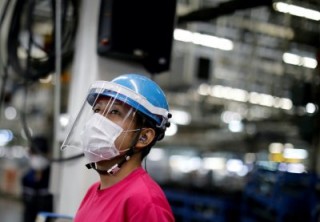Loading
Search
▼ Japan’s Economy Not Spared In 2020
- Category:Other
Japan is facing a third wave of COVID-19 infections and the waves are getting higher each time. Debate is once again raging about the government’s balancing act between pandemic control and preservation of economic activity.
The government’s task is to solve a complicated dynamic optimisation problem that it has never confronted before this pandemic. To make matters worse, different groups of people are being affected differently, making it impossible to please everyone.
The only solution to all is a safe and effective vaccine, for which the government can only place an order and await delivery. It is easy to criticise the government’s handling — or at times mishandling — of the pandemic, but it is like criticising a first-time surfer for his failure to ride well over waves.
Looking back on the Japanese economy this year, the damage done by COVID-19 is clear. Annualised second quarter GDP plummeted by almost 30 per cent, the largest drop in post-war history. Third quarter preliminary figures indicate a considerable comeback, making up for more than half of the second-quarter loss.
No doubt this was in part due to a consumer response to the government’s various subsidy schemes, such as the ‘Go To’ travel and eat campaigns. However, these campaigns may have sowed the seeds for the third wave, and the government is being forced to backtrack. As a result, economic recovery is expected to stagnate in the fourth quarter.
The system of ‘stop and go’ policies make for bumpy economic conditions. To minimise disruption, policymakers need to learn faster from experience and adjust policy. Also needed is to see through the pandemic’s immediate challenges and to lay the foundations for medium-term economic stability. Can this be done?
The question raises another notable development for the nation in 2020: the change in political leadership from Shinzo Abe to Yoshihide Suga in September.
Suga has expressed his political credo succinctly as ‘self-support, mutual support, and then public support’. This was seen by some as cold-blooded neo-liberal ideology. He was the only one among the three candidates for party leadership after Abe who dared to mention the need to raise the consumption tax.
Unlike Abe, a princeling from a renowned family with political legacy, Suga was born into a rural farmer’s family and worked his way up to the top of the political ladder. Perhaps because of this, he seems more interested in tangible but small, microeconomic improvements, such as mobile phone charge reductions, rather than big-picture macroeconomic policy programs like Abenomics.
All this makes him look like a low-key, traditional and conservative politician. One may wonder if such a person can sail the country through the storms ahead. But Suga’s policy style may in fact be exactly what Japan needs right now.
First, his ‘self-support, mutual support, and then public support’ credo is a breath of fresh air amid strong populist sentiments inside and outside Japan. At a very early stage in the pandemic, the Abe administration handed out 100,000 yen (US$959) to everybody, yielding to pressure from its coalition partner Komeito.
It is clear that stop-gap measures like these have run their course. The government has to use better-targeted measures to protect the poor and rely on self-help by those who can help themselves.
Second, even with that done, expenditures related to COVID-19 will make Japan’s public finances turn from bad to worse. Japan has long been spared from fiscal crisis, and there may be no imminent risk of it happening. Still, it is reassuring that the nation’s top politician has the courage to voice his concern about fiscal sustainability by mentioning the need for further consumption tax hikes.
And third, although the Japanese economy did improve under Abe’s leadership, it is not the case that its underlying growth potential has visibly increased. So-called ‘reflationist’ academics and pundits, who had strong influence on Abe’s economic policy, argued that demand stimulus through big-bang monetary easing would kick-start growth. But their predictions have not been borne out by fact.
Many economists believe that sustained economic growth comes from an improved supply side. This may require implementing a long list of industry-specific, microeconomic policy measures against vested interests.
Regulatory reforms are a must, not only in telecommunications where Suga is known to be interested, but also in many other industries where bold deregulation is in order, such as in medical care, old-age care and childcare, education, and agriculture.
Labour market reforms are also needed, including making effective use of new policy on foreign workers introduced in April 2019. With Suga’s willingness to pay attention to microeconomic policies, it is hoped that Japan is now in good hands.
- December 12, 2020
- Comment (0)
- Trackback(0)


